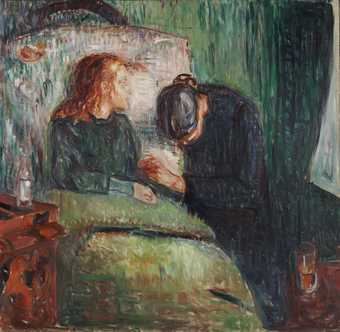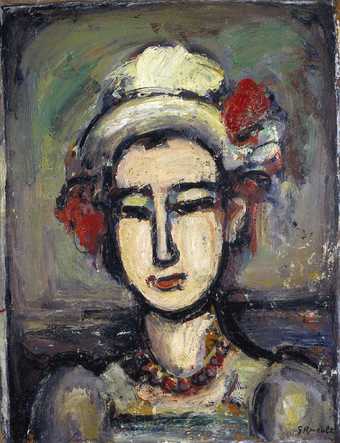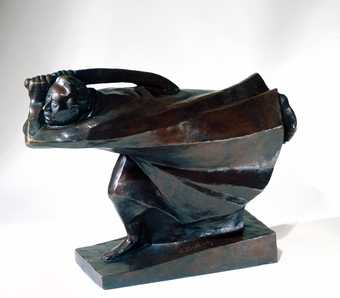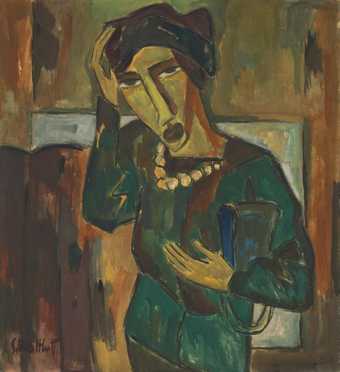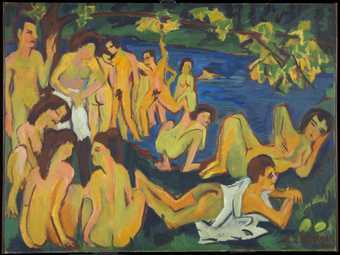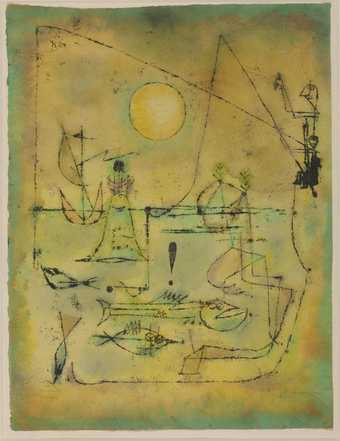In expressionist art, colour in particular can be highly intense and non-naturalistic, brushwork is typically free and paint application tends to be generous and highly textured. Expressionist art tends to be emotional and sometimes mystical. It can be seen as an extension of Romanticism.
Although the term expressionist can be applied to artworks from any era, it is generally applied to art of the twentieth century. It may be said to start with Vincent Van Gogh and then form a major stream of modern art embracing, among many others, Edvard Munch, fauvism and Henri Matisse, Georges Rouault, the Brücke and Blaue Reiter groups, Egon Schiele, Oskar Kokoschka, Paul Klee, Max Beckmann, most of Pablo Picasso, Henry Moore, Graham Sutherland, Francis Bacon, Alberto Giacometti, Jean Dubuffet, Georg Baselitz, Anselm Kiefer and the neo-expressionism of the 1980s.
The term is often specifically associated with modern German art (also referred to as German expressionism), particularly the Brücke and Blaue Reiter groups.
After World War II an abstract form of expressionism developed in America, known as abstract expressionism.

